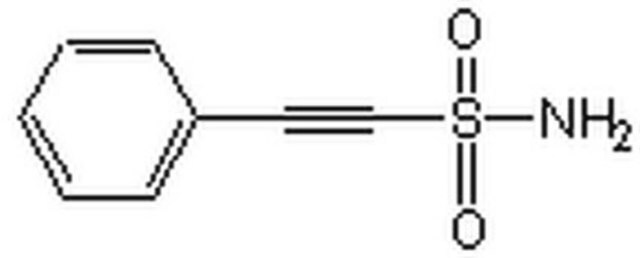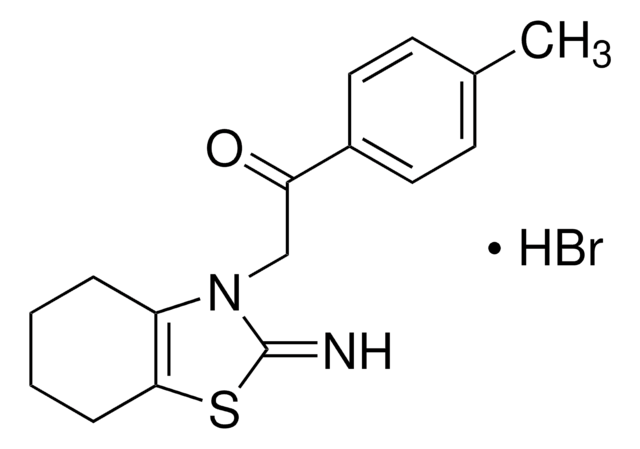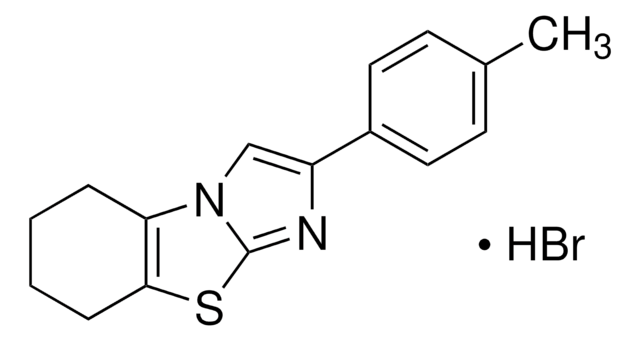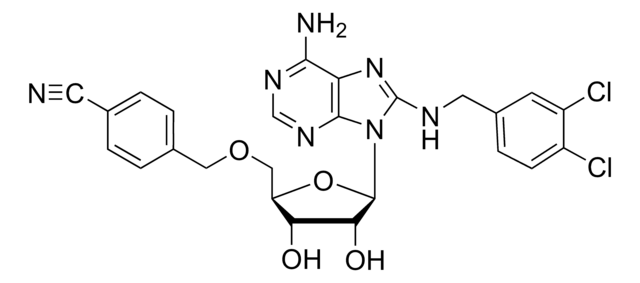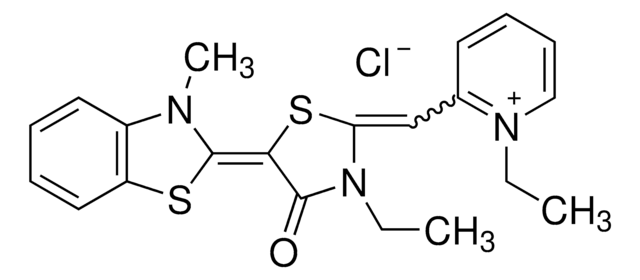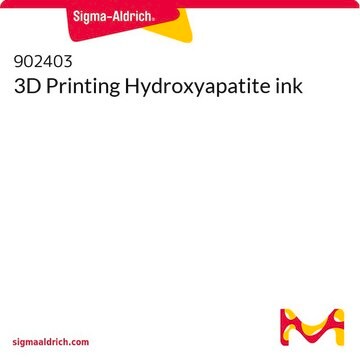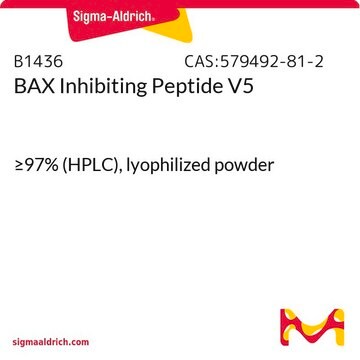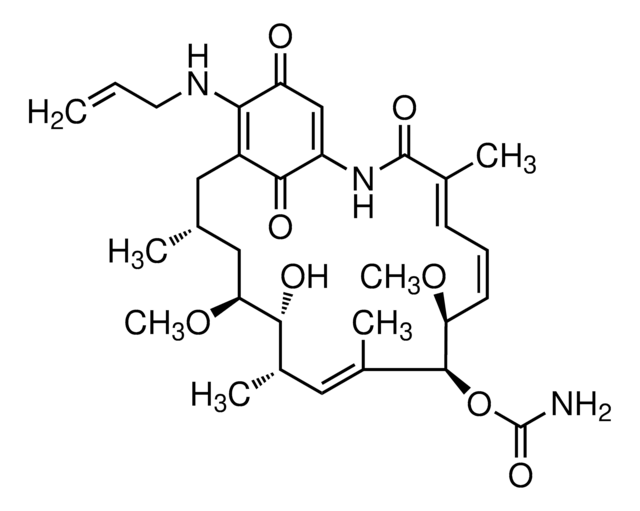P0122
Pifithrin-μ
≥97% (HPLC), solid
Synonym(s):
2-Phenylethynesulfonamide, PFTμ
Sign Into View Organizational & Contract Pricing
All Photos(1)
About This Item
Empirical Formula (Hill Notation):
C8H7NO2S
CAS Number:
Molecular Weight:
181.21
MDL number:
UNSPSC Code:
12352200
PubChem Substance ID:
NACRES:
NA.77
Recommended Products
Quality Level
Assay
≥97% (HPLC)
form
solid
storage condition
desiccated
solubility
DMSO: soluble >10 mg/mL, clear
H2O: insoluble
storage temp.
2-8°C
SMILES string
NS(=O)(=O)C#Cc1ccccc1
InChI
1S/C8H7NO2S/c9-12(10,11)7-6-8-4-2-1-3-5-8/h1-5H,(H2,9,10,11)
InChI key
ZZUZYEMRHCMVTB-UHFFFAOYSA-N
Application
Pifithrin-μ has been used:
- to treat microglial cell line to analyse its neuroprotective effect on M1-like and M2-like phenotype
- as heat shock protein (HSP)-70 inhibitor, to treat transfected Marc-145 cells
- to inhibit heat shock cognate 70 (Hsc70) to elucidate heat shock chaperones mouse embryonic stem cells
Biochem/physiol Actions
Pifithrin-μ is an inhibitor of p53 binding and anti-apoptotic, which directly inhibits p53 binding to mitochondria as well as to Bcl-xL and Bcl-2 proteins. PFTμ rescues cells from lethal γ-irradiation-induced cell death. Because pifithrin-μ shuts down only the p53-mitochondrial pathway without affecting the transcriptional functions of p53, it is superior to pifithrin-α.
Pifithrin-μ(PFT-μ) has neuroprotective capabilities against cell death in a preclinical model of hypoxia-ischemia (HI)-induced neonatal encephalopathy. It inhibits nuclear factor-ΙB (NF-ΙB) pathway by inhibiting the interaction of molecular chaperone heat shock protein (HSP)-70 with its substrates.
Signal Word
Warning
Hazard Statements
Precautionary Statements
Hazard Classifications
Acute Tox. 4 Oral
Storage Class Code
11 - Combustible Solids
WGK
WGK 3
Flash Point(F)
Not applicable
Flash Point(C)
Not applicable
Personal Protective Equipment
dust mask type N95 (US), Eyeshields, Gloves
Choose from one of the most recent versions:
Already Own This Product?
Find documentation for the products that you have recently purchased in the Document Library.
Customers Also Viewed
Fernando Mérida et al.
International journal of nanomedicine, 15, 419-432 (2020-02-06)
Magnetic Fluid Hyperthermia (MFH) is a promising adjuvant for chemotherapy, potentiating the action of anticancer agents. However, drug delivery to cancer cells must be optimized to improve the overall therapeutic effect of drug/MFH combination treatments. The aim of this work
J I-Ju Leu et al.
Molecular cell, 36(1), 15-27 (2009-10-13)
The multifunctional, stress-inducible molecular chaperone HSP70 has important roles in aiding protein folding and maintaining protein homeostasis. HSP70 expression is elevated in many cancers, contributing to tumor cell survival and resistance to therapy. We have determined that a small molecule
Tomohisa Horibe et al.
Molecular cancer, 11, 59-59 (2012-08-24)
Heat-shock protein 90 (Hsp90) is vital to cell survival under conditions of stress, and binds client proteins to assist in protein stabilization, translocation of polypeptides across cell membranes, and recovery of proteins from aggregates. Therefore, Hsp90 has emerged as an
The anti-inflammatory effects of the small molecule pifithrin-mu on BV2 microglia
Fleiss B, et al.
Developmental Neuroscience, 37(4-5), 363-375 (2015)
Tomoya Uchimura et al.
Frontiers in endocrinology, 10, 529-529 (2019-08-21)
Medaka (Oryzias latipes) are teleost fish with a XX/XY sex determination system. Recently, it was reported that high temperature (HT) induced the masculinization of XX medaka by increasing the levels of cortisol, a major glucocorticoid produced by interrenal cells in
Our team of scientists has experience in all areas of research including Life Science, Material Science, Chemical Synthesis, Chromatography, Analytical and many others.
Contact Technical Service